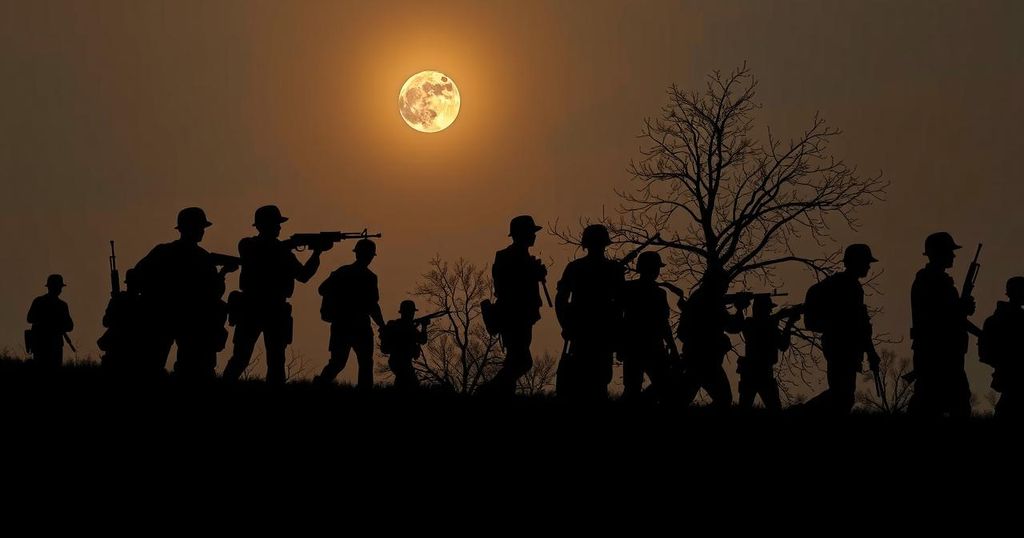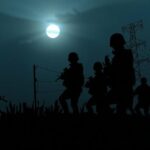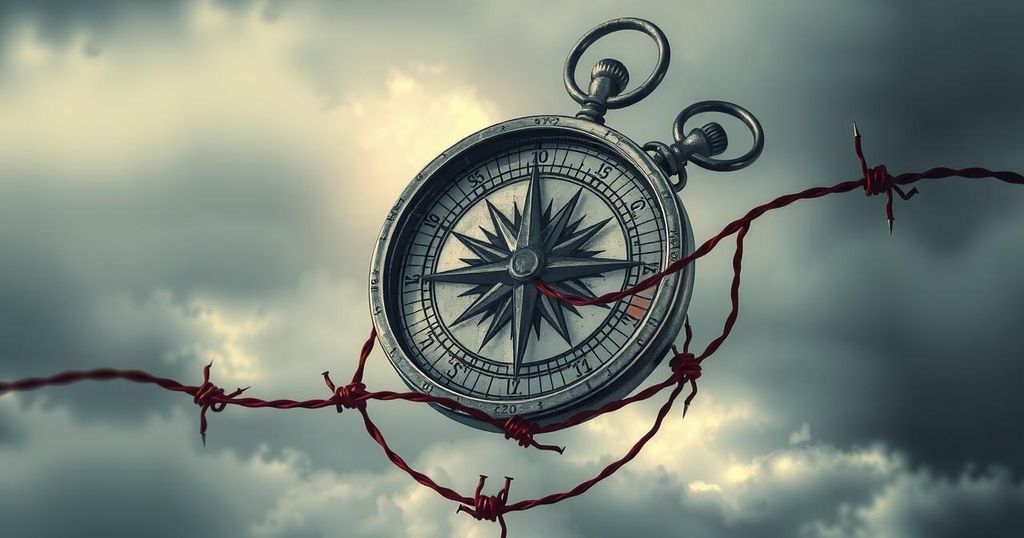The Ambiguity of Journalistic Ethics in Alex Garland’s *Civil War*
Summary
*Civil War*, directed by Alex Garland, explores the turbulent experience of journalists during a fictional civil conflict in America. The story reveals the complex relationship between two photographers, Lee and Jessie, as they navigate their roles against the backdrop of a fascist regime. The film critiques the nature of objectivity in journalism while culminating in a provocative final image that raises questions about the impact and ethics of war reporting, ultimately reflecting on the detachment often present in media coverage of violence.
The film Civil War, directed by Alex Garland, presents a convoluted narrative intertwined with photojournalism, reflecting upon the effects of a fictitious civil war in America. Set against a backdrop of political upheaval, where a fascist president has dismantled key government agencies and conducted brutal crackdowns on dissent, the film focuses primarily on a group of journalists on a road trip to document the conflict. Key characters are photographer Lee, characterized by her emotional detachment, and young photographer Jessie, who idolizes her while evolving through the harrowing experiences they encounter on their journey. As the journalists navigate their way to the heart of the conflict in Washington, their experiences force them to confront their roles as reporters and the implications of their detached observations amidst violence and chaos. The narrative shifts when Lee’s stoicism begins to unravel under the strain of the war, contrasting sharply with Jessie, who grows more energized by the unfolding violence. The film culminates in a striking yet ambiguous final image taken by Jessie of a gloating military group posing by the body of the slain president, prompting viewers to question the ethics of journalism and the impact of their work in a time of conflict. Ultimately, Civil War suggests that the pursuit of truth through photography is noble, presenting violence as a spectacle and exploring the relationship between journalists and their subjects. However, it offers a disconcerting lack of context regarding the broader implications of the political turmoil, leaving the audience wondering about the actual impact of the journalists’ actions in a society seemingly indifferent to war. In failing to provide a clear political stance or to delve into the motivations for capturing the photograph of the fallen president, the film raises questions about the role of objectivity in journalism and the limits of detachment as a narrative device.
*Civil War* is a speculative film that captures the turbulence of a divided America through the lens of journalists navigating a civil conflict. The film highlights the disconnect between the experiences of these journalists and the political structure they cover, presenting a commentary on the ethics of journalism within a framework of violence and chaos. The central characters embody a transformation tied to the war, reflecting the burdens carried by those who document and report on such crises. Garland’s use of contrasting character arcs between Lee and Jessie serves to explore the internal struggles faced by journalists, inviting viewers to consider the implications of their work amidst escalating violence. The film ultimately operates within a politically vague landscape, prompting discussions about the responsibilities of the press and the nature of truth in reporting.
*Civil War* serves as a complex exploration of the role of journalism in times of conflict, particularly in how it grapples with the concept of objectivity amidst distressing circumstances. Though the film attempts to depict the nobility of photojournalism, it simultaneously undermines this portrayal by introducing ambiguity regarding its political messages and the real-world implications of its characters’ actions. Through its narrative, *Civil War* compels viewers to reflect on the realities of war, the ethics of documentation, and the potential desensitization to violence that may occur in both media and personal perception.
Original Source: www.vulture.com








Post Comment